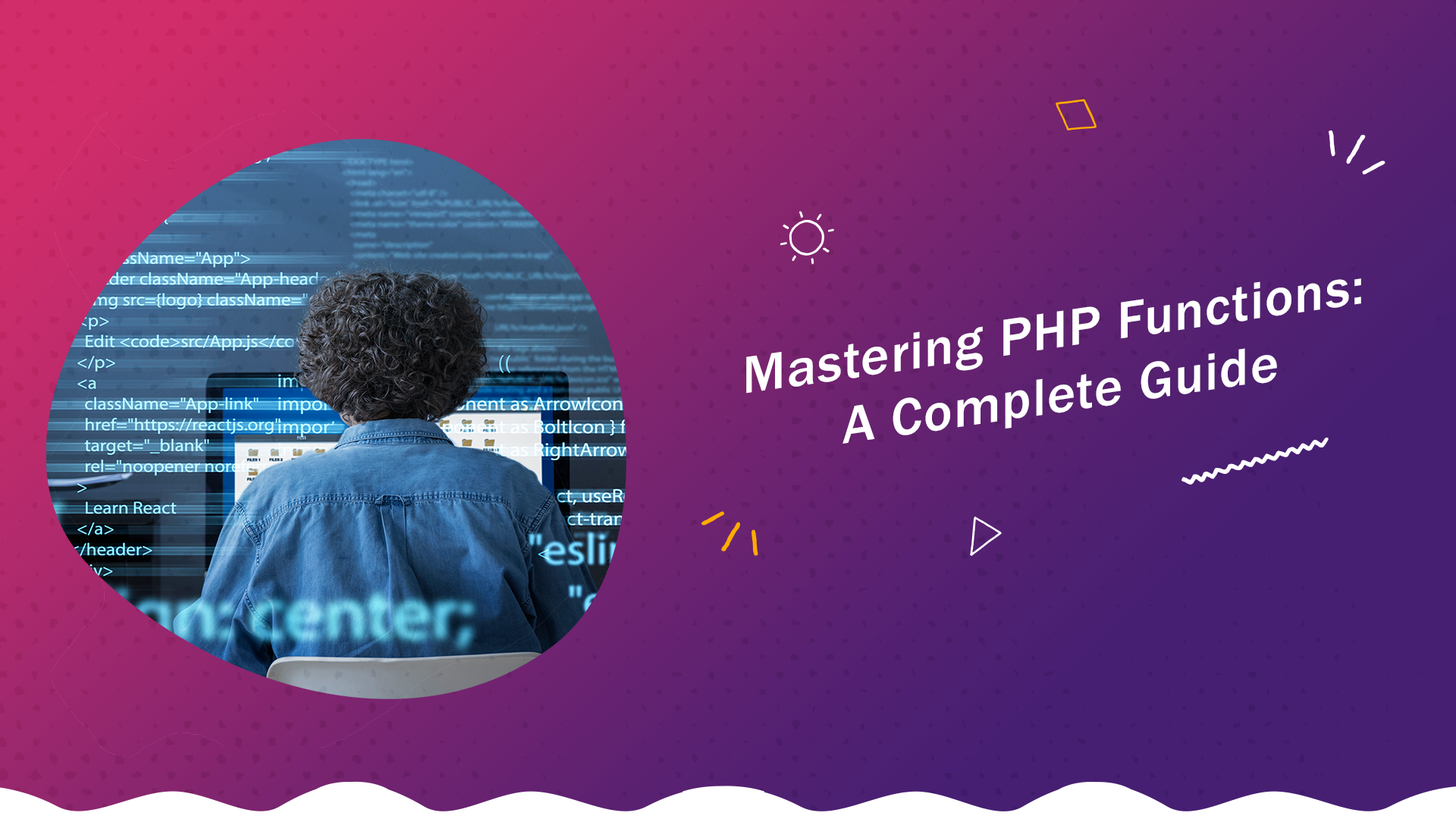Table of Contents
Introduction to PHP Functions: Your Foundation for Mastery
PHP functions are the building blocks of dynamic web applications. Understanding how to define, use, and optimize them is crucial for any aspiring PHP developer. This guide, “Mastering PHP Functions: A Complete Guide,” will take you from the basics to advanced techniques, ensuring you have a solid grasp of this essential concept. We’ll cover everything from basic syntax to complex closures, providing you with the knowledge to write clean, efficient, and reusable PHP code. Remember to integrate this with your overall strategy using Content Marketing Strategies.
Why Are PHP Functions Important?
PHP functions promote code reusability, making your code more organized and maintainable. Instead of repeating the same block of code multiple times, you can encapsulate it within a function and call it whenever needed. This not only saves you time and effort but also reduces the risk of errors. Furthermore, they aid in debugging and testing. Isolate code segments and their functionality and check for issues individually before combining. We recommend to anyone on the beginning stages, that they start with a Beginner’s Guide to Web Development.
Defining and Calling PHP Functions
The basic syntax for defining a PHP function is straightforward:
function functionName($parameter1, $parameter2) {
// Code to be executed
return $returnValue;
}
To call the function, simply use its name followed by parentheses, passing in any required arguments:
$result = functionName($argument1, $argument2);
Let’s look at a simple example:
function greet($name) {
return "Hello, " . $name . "!";
}
echo greet("World"); // Output: Hello, World!
Function Parameters and Arguments
PHP functions can accept parameters, which are variables that receive values when the function is called. These values are known as arguments. You can define functions with:
- Required parameters: These must be provided when the function is called.
- Optional parameters: These have default values and can be omitted when the function is called.
Here’s an example demonstrating optional parameters:
function multiply($number1, $number2 = 2) {
return $number1 * $number2;
}
echo multiply(5); // Output: 10 (5 * 2)
echo multiply(5, 3); // Output: 15 (5 * 3)
Return Values
PHP functions can return values using the return statement. The returned value can be of any data type, including strings, numbers, arrays, and objects. If a function doesn’t explicitly return a value, it returns NULL by default. Mastering PHP Functions: A Complete Guide requires understand how to utilize them efficiently
function add($number1, $number2) {
return $number1 + $number2;
}
$sum = add(10, 20);
echo $sum; // Output: 30
Variable Scope in PHP Functions
Understanding variable scope is crucial when working with PHP functions. Variables defined within a function have local scope, meaning they are only accessible within that function. Variables defined outside a function have global scope and can be accessed anywhere in the script, except within functions unless explicitly declared as global. We can show you some Advanced Programming Techniques to help you organize all of your functions efficiently.
$globalVariable = 10;
function myFunction() {
global $globalVariable; // Accessing the global variable
$localVariable = 5;
echo $globalVariable; // Output: 10
echo $localVariable; // Output: 5
}
myFunction();
echo $globalVariable; // Output: 10
// echo $localVariable; // This will cause an error because $localVariable is not accessible outside the function
Anonymous Functions (Closures)
Anonymous functions, also known as closures, are functions without a name. They are often used as callback functions or for encapsulating small pieces of code. Closures can access variables from the surrounding scope using the use keyword.
$message = "Hello";
$greet = function ($name) use ($message) {
return $message . ", " . $name . "!";
};
echo $greet("World"); // Output: Hello, World!
Recursive Functions
A recursive function is a function that calls itself. Recursion can be a powerful technique for solving problems that can be broken down into smaller, self-similar subproblems. However, it’s important to ensure that the recursion has a base case to prevent infinite loops. Here’s an example of a recursive function to calculate the factorial of a number:
function factorial($n) {
if ($n == 0) {
return 1; // Base case
} else {
return $n * factorial($n - 1); // Recursive call
}
}
echo factorial(5); // Output: 120
Best Practices for Writing PHP Functions
- Keep functions small and focused: Each function should perform a single, well-defined task.
- Use descriptive names: Choose names that clearly indicate what the function does.
- Document your functions: Use PHPDoc to document your functions, including parameters, return values, and a brief description.
- Handle errors gracefully: Implement error handling to prevent unexpected crashes.
- Test your functions thoroughly: Write unit tests to ensure your functions are working correctly.
- Make sure your SEO is up-to-date. Check for the latest SEO Best Practices.
Built-in PHP Functions
PHP comes with a vast library of built-in functions that can perform a wide range of tasks, such as string manipulation, array manipulation, file handling, and database interaction. Familiarizing yourself with these functions can save you a lot of time and effort. Some commonly used built-in functions include:
strlen(): Returns the length of a string.strpos(): Finds the position of the first occurrence of a substring in a string.explode(): Splits a string into an array.implode(): Joins array elements into a string.array_push(): Adds an element to the end of an array.file_get_contents(): Reads the contents of a file.date(): Formats a date and time.
Mastering PHP Functions: A Complete Guide, requires understanding these basic built-in functions. Here’s a link to the official documentation for a full list: PHP Function Reference.
Advanced Function Techniques
As you become more proficient with PHP functions, you can explore advanced techniques such as:
- Function overloading: Defining multiple functions with the same name but different parameters. (Not directly supported in PHP but can be emulated.)
- Variable functions: Calling a function using a variable that holds the function name.
- Generator functions: Functions that yield values one at a time, allowing you to iterate over large datasets without loading them all into memory.
Debugging PHP Functions
Debugging is an essential skill for any developer. When working with PHP functions, you can use techniques such as:
var_dump(): Dumps information about a variable, including its type and value.print_r(): Prints human-readable information about a variable.- Error logging: Logging error messages to a file or database for later analysis.
- Debuggers: Using a debugger like Xdebug to step through your code and inspect variables.
Conclusion: Mastering PHP Functions
Mastering PHP functions is an ongoing process. By understanding the concepts and techniques outlined in this guide, you’ll be well on your way to writing clean, efficient, and reusable PHP code. This understanding empowers developers to construct robust, maintainable, and scalable applications. This “Mastering PHP Functions: A Complete Guide,” has been a resource to guide you through this journey.
Always be sure to use all of the official documentation as a resource for your learning, especially for advanced uses: PHP Official Documentation. Good luck!




